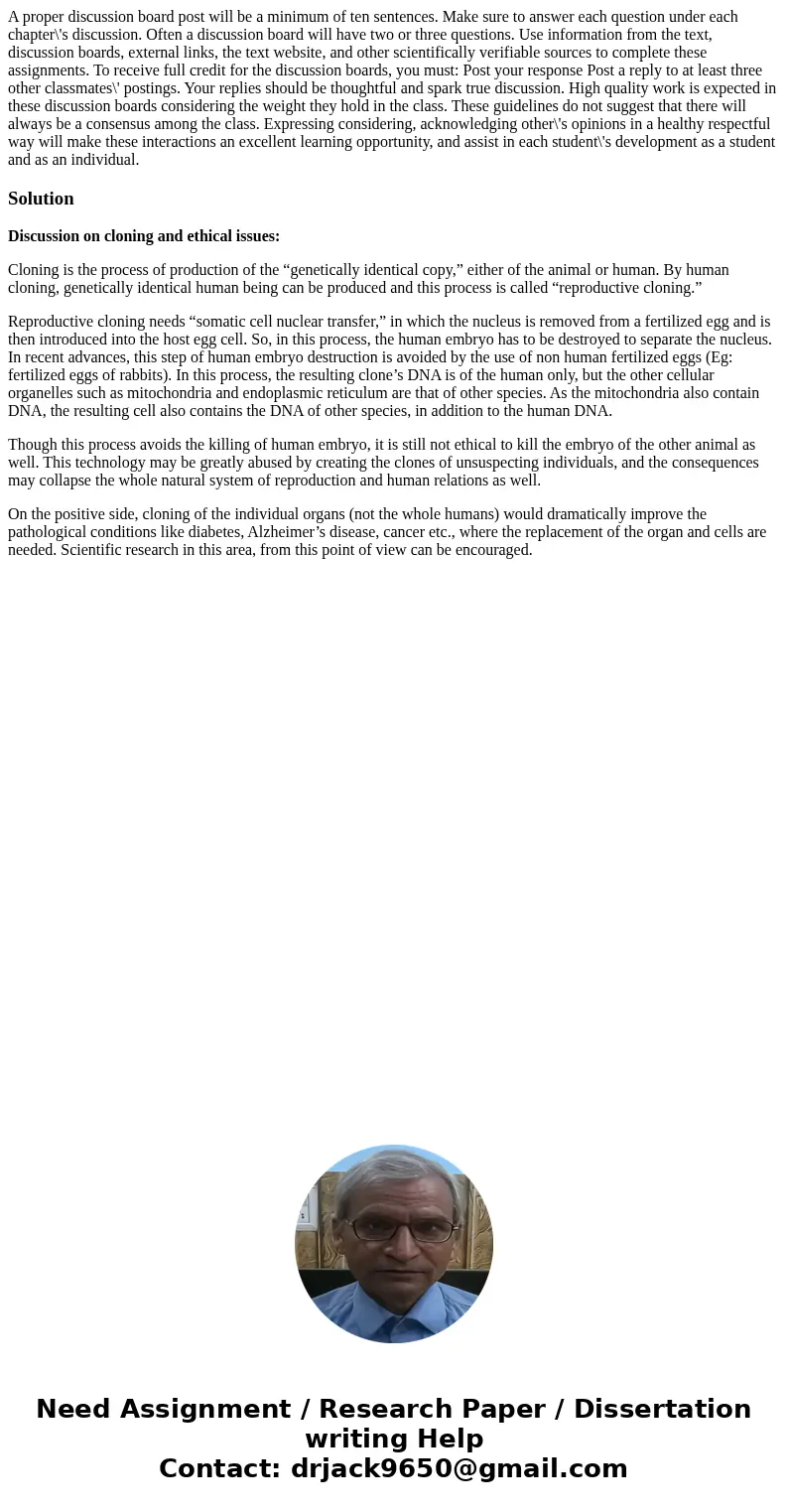A proper discussion board post will be a minimum of ten sent
Solution
Discussion on cloning and ethical issues:
Cloning is the process of production of the “genetically identical copy,” either of the animal or human. By human cloning, genetically identical human being can be produced and this process is called “reproductive cloning.”
Reproductive cloning needs “somatic cell nuclear transfer,” in which the nucleus is removed from a fertilized egg and is then introduced into the host egg cell. So, in this process, the human embryo has to be destroyed to separate the nucleus. In recent advances, this step of human embryo destruction is avoided by the use of non human fertilized eggs (Eg: fertilized eggs of rabbits). In this process, the resulting clone’s DNA is of the human only, but the other cellular organelles such as mitochondria and endoplasmic reticulum are that of other species. As the mitochondria also contain DNA, the resulting cell also contains the DNA of other species, in addition to the human DNA.
Though this process avoids the killing of human embryo, it is still not ethical to kill the embryo of the other animal as well. This technology may be greatly abused by creating the clones of unsuspecting individuals, and the consequences may collapse the whole natural system of reproduction and human relations as well.
On the positive side, cloning of the individual organs (not the whole humans) would dramatically improve the pathological conditions like diabetes, Alzheimer’s disease, cancer etc., where the replacement of the organ and cells are needed. Scientific research in this area, from this point of view can be encouraged.

 Homework Sourse
Homework Sourse